Joint statement welcoming CJEU judgment to halt unlawful gender title collection

The EU Court of Justice has judged that it is unlawful for France’s national railway company to force passengers to choose between ‘Mr’ and ‘Ms’ when purchasing train tickets.
Today, the CJEU issued a judgment in the case C-394/23 initiated by the Mousse Association, saying that it is unlawful for a railway company to collect a customer’s gender marker, saying this personal data is not necessary for the purchase of a train ticket and may create a risk of discrimination on grounds of gender identity.
The judgment concerns a case initiated by Mousse representing 64 individuals against France’s national state-owned railway company (SNCF) practice of forcing passengers to choose between the civil titles “Mr” or “Ms” when purchasing train tickets. The train company does not offer a third option and alleged that this data was necessary to personalise its commercial communication based on customers’ presumed gender identity.
The case relies on the General Data Protection Regulation (GDPR)’s principles of data minimisation and accuracy, as well as the fundamental EU law principle of non-discrimination.
The French court asked the CJEU to clarify if common practices in civil, commercial, and administrative communications can help determine whether data collection meets the GDPR’s requirements for being adequate, relevant, and necessary under Article 5(1)(c), and lawful under Article 6(1)(b) and (f). If so, collecting only customers’ titles like “Mr” or “Ms” might be considered necessary and compliant with the principle of data minimisation.
The CJEU was also asked whether the right of individuals to object to the use of their personal data by relying on their specific situation under Article 21 GDPR should be a determining factor in assessing the necessity of the mandatory data collection.
THE CJEU DECISION
The CJEU recalled that the principle of data minimisation requires that collected data be adequate, relevant and limited to what is necessary for the purposes for which those data are processed. The processing of personal data is lawful only if it is necessary for the performance of a contract or for the purposes of a legitimate interest
In this respect, the Court ruled that the personalisation of commercial communications based on presumed gender identity according to a customer civil title is not necessary as it is not objectively indispensable to the performance of a rail transport contract, contrary to what the SNCF and the French State alleged in this case. The Court stated that the railway company could opt for generic and inclusive terms, which are not linked to presumed gender identity, when addressing customers, as this would be a less intrusive solution.
Additionally, the Court rebutted SNCF’s argument that it pursued a “legitimate interest” as it did not comply with the conditions under GDPR to do so. Notably, collecting gender markers cannot be regarded as necessary when the fundamental freedoms and rights of customers prevail over the legitimate interest of data processors.
Importantly, the Court ruled that processing civil titles of customers can in some cases create a risk of discrimination on grounds of gender identity. This is the first time that the CJEU evokes the fundamental EU law principle of non-discrimination to protect the ground of gender identity for trans and non-binary people.
IMPACT
The importance of this judgement therefore extends beyond the applicant’s individual circumstances. All public and private organisations that are required to comply with GDPR in the EU will need to comply with this judgment and stop collecting gender markers when it is not strictly necessary in the light of the purposes for which this data is processed.
The judgment also underscores the broader issue faced by trans and non-binary people who are constantly forced to choose in their everyday lives between two options that do not correspond to their identity. Also, binary trans people, whose identity documents do not match their gender identity, will benefit from fewer mandatory forms asking for a gender marker, when it is not necessary to the service or contract at hand.
According to the EU Fundamental Rights Agency LGBTI survey 2023, almost two-thirds (64 per cent) of trans respondents felt discriminated against in the year before the survey, followed by more than half (51 per cent) of non-binary and gender-diverse respondents, where every second respondent experienced discrimination in the same period,. The survey also found that 15 per cent of non-binary and 35 per cent of trans people said they experienced discrimination when they had to show their ID. In contrast, only one per cent of cisgender endosex respondents reported such issues. Non-binary people make up the largest compound (65 per cent) of the trans community and tend to be younger.
REACTIONS
According to the claimant’s legal representative, Etienne Deshoulières: “The CJEU’s decision marks a significant shift in the relationship between the State and citizens. Previously, the State “owned” the data in civil-status records and prohibited people from modifying that data, except in exceptional circumstances. Now, each citizen “owns” their personal data and grants the State permission to process it within the limits set by the GDPR, including the principles of minimisation and accuracy. The binary distinction of gender under the law has long been the cornerstone of the system that discriminates against sexual and gender minorities. If this legal binary no longer exists, then a broad array of legal discriminations disappears. It would represent the culmination of decades of advocacy for LGBT+ rights.”
TGEU Expert Advisor, Richard Köhler, comments: “Sixty-five per cent of trans people in Europe identify as non-binary, a young and mobile group forced to navigate systems that don’t match their identity. This case signals progress: less paperwork, fewer binary boxes, and a future where EU law finally recognises and protects non-binary and trans lives. The next generation deserves nothing less.”
ILGA-Europe Senior Strategic Litigation Officer, Marie-Hélène Ludwig added: “Today’s ruling is crucial in putting an end to the discrimination on the grounds of gender identity faced by non-binary persons and all who do not identify within the gender binary, and who are forced to choose in their day-to-day lives between two options that do not correspond to their identity. This judgment will have far-reaching effects, as it clearly states that collecting gender markers when it is not strictly needed is not only unlawful but also potentially discriminatory. The judgement clearly sets an obligation for all businesses, organisations and public services to do away with unnecessary binary data collection, according to EU law.”
ILGA-Europe and TGEU provided support to Association Mousse and its lawyers, Etienne Deshoulières from Deshoulières Avocats and Johan Heymans, Yasmina El Kaddouri and Delphine Holemans from VS Advocaten, in this case.
Read Association Mousse’s full statement here.
What European countries might soon start recognising non-binary people?

Interested in the current state of non-binary rights in Europe? This concise guide covers the most important updates and developments you should be aware of
Current situation
As of 2024, only a few European countries officially recognise non-binary gender markers. Iceland and Germany lead the way, allowing non-binary people to have their identities legally acknowledged. Denmark and Malta partially acknowledge non-binary identities, though issues remain, particularly in areas like the healthcare sector. You can read more about it in one of our previous blogs. However, progress is slow, and many countries still lack comprehensive legal frameworks for non-binary recognition.
Which countries are next?
France and the SNCF case: potential impact across the EU
Last Thursday (July 11, 2024) the Advocate General of the Court of Justice of the European Union (CJEU) gave his opinion that France’s national railway company SNCF should stop forcing passengers to choose between the civil titles “Mr” or “Ms” when purchasing train tickets. This landmark case, brought by Association Mousse, could set a precedent similar to the Deutsche Bahn case in Germany across the European Union.
In his opinion, which was published earlier this week, the Advocate General of the CJEU said that it is not “necessary” and that it is therefore unlawful for the SNCF to collect individuals’ civil titles. The Advocate General also agreed with Association Mousse that processing data on civil titles creates a risk of discrimination on the grounds of gender identity for trans and non-binary people notably as other States legally recognise non-binary identities.
Should the CJEU’s judgement align with the opinion of the Advocate General, all organisations collecting gender markers would be forced to stop doing so when it is not necessary for the service provided. The outcome has the potential to influence broader European standards for non-binary recognition, emphasising the role of strategic litigation in advancing rights.
Belgium’s legal hurdles
Belgium’s journey towards non-binary recognition has faced significant setbacks. In 2019, the Belgian Constitutional Court declared the existing laws discriminatory towards non-binary people. The government proposed removing gender markers from ID cards entirely, but this reform has stalled due to political and technical challenges. Despite these obstacles, there are plans to eventually implement these changes.
Italy on the verge of change
Italy is also nearing a significant decision. The Italian Constitutional Court is expected to rule on the inclusion of a third gender marker. This ruling could trigger legislative changes, inspiring other countries to follow suit and potentially transforming the landscape of non-binary rights in Europe.
Legal battles play a pivotal role in the fight for non-binary recognition. Cases like the ones in France and Germany highlight how litigation can drive change even when legislative processes are slow. These legal battles and proposed reforms are part of a broader movement toward inclusivity and respect for non-binary identities across Europe.
Beyond laws: the experience of being a non-binary person in EU
The third EU LGBTIQ survey report, published in June by the European Union Fundamental Rights Agency (FRA) offers some insights into non-binary lives. Almost 20% of respondents identified as non-binary, yet more than 90% do not have their identity legally recognised. When delving into the reasons behind this, it becomes evident that non-binary people face unique challenges and perspectives.
The reluctance or perceived lack of necessity for legal gender recognition (LGR) among non-binary people is often due to the accessibility and relevance of existing LGR frameworks. These frameworks typically do not include non-binary options, which discourages non-binary people from pursuing LGR.
For instance, while nearly 60% of trans women and men intend to seek legal gender recognition in the future, only 17% of non-binary respondents share this intention. This disparity suggests that non-binary people might not see current LGR options as applicable or beneficial to their identities, especially considering the potential discrimination they might face in the process.
Additionally, safety concerns significantly impact the daily lives of non-binary people. The FRA data revealed that 23% of non-binary people frequently hide their gender identity for safety reasons, a higher percentage compared to 10% of trans men and slightly more than trans women at 20%. This heightened sense of vulnerability underscores the pressing need for legal recognition and protection.
What do non-binary people want from the law?
Despite developments in Europe and farther afield, we still have relatively little data on what non-binary people want from the law and how they are currently experiencing different legal systems. This is something which ILGA-Europe, along with other civil society partners and a team of academics, will be looking to explore over the coming year. By understanding and addressing the specific challenges faced by non-binary people, we can better advocate for their rights and recognition across Europe.
Here is a list of useful resources for policy-makers and activists on the topic of non-binary rights:
- Rainbow Map: Legal gender recognition
- Human Rights and Gender Identity and Expression: Issue Paper by the Council of Europe Commissioner for Human Rights
- Non-binary gender registration models in Europe: Report on third gender marker or no gender marker options by Lena Holzer for ILGA-Europe
- Intersections – Diving into the FRA LGBT II Survey data: Trans and non-binary briefing by ILGA-Europe and TGEU
Joint Statement welcoming CJEU Advocate General on collection of gender binary civil titles

ILGA-Europe, TGEU and Association Mousse welcome the opinion of the Advocate General of the Court of Justice of the European Union confirming that the French national railway company, SNCF should stop collecting its passengers’ civil titles.
The opinion concerns a case initiated by the Mousse Association, representing 64 individuals, against France’s national state-owned railway company (SNCF) practice of forcing passengers to choose between the civil titles ‘Mr’ or ‘Ms’ when purchasing train tickets. The train company does not offer a third option.
The case relies on the General Data Protection Regulation (GDPR)’s principles of data minimisation and accuracy, as well as the fundamental EU law principle of non-discrimination.
Yesterday, CJEU Advocate General Maciej Szpunar said that it is not “necessary” under GDPR and that it is therefore unlawful for the SNCF to collect individuals’ civil titles. The Advocate General dismissed the SNCF’s arguments that the data collection in question is necessary to adapt its commercial communication or transport services depending on the passengers’ civil titles.
The Advocate General also agreed with Association Mousse that processing data on civil titles creates a risk of discrimination on the grounds of gender identity for trans and non-binary people notably as other States legally recognise non-binary identities.
As such, the Advocate General’s reasoning represents a positive step forward for the rights of non-binary people, but also more broadly, for LGBTI people who do not identify within the gender binary.
As the CJEU will now deliberate on this case, our organisations hope that the judgment will align with the opinion of the Advocate General and put an end to the misgendering and discrimination faced by non-binary people who are constantly forced to choose in their everyday lives between two options that do not correspond to their identity. Also, binary trans people, whose identity documents do not match their gender identity, will benefit from fewer mandatory forms asking for a gender marker, when it is not necessary to the service or contract at hand.
Therefore, a positive judgment would set a significant precedent for the inclusion of all gender identities in many areas of life, by requiring forms without any reference to gender markers or with inclusive options. It doesn’t take anything away from anyone, but it helps marginalised communities a lot.
Almost two-thirds (64 per cent) of trans respondents felt discriminated against in the year before the survey, followed by more than half (51 per cent) of non-binary and gender-diverse respondents, where every second respondent experienced discrimination in the same period, found the EU Fundamental Rights Agency LGBTI survey 2023. The same survey also found that 15 per cent of non-binary and 35 per cent of trans people said they experienced discrimination when they had to show their ID. In contrast, only 1% of cisgender endosex respondents reported such issues. Non-binary people make up the largest compound (65 per cent) of the trans community
ILGA-Europe and TGEU are providing support to Association Mousse and its lawyers, Etienne Deshoulières from Deshoulières Avocats and Johan Heymans, Yasmina El Kaddouri and Delphine Holemans from VS Advocaten, in this case.
ILGA-Europe
TGEU (Trans Europe and Central Asia)
Read the Advocate General’s opinion here.
Remarkable and resilient Prides across Europe
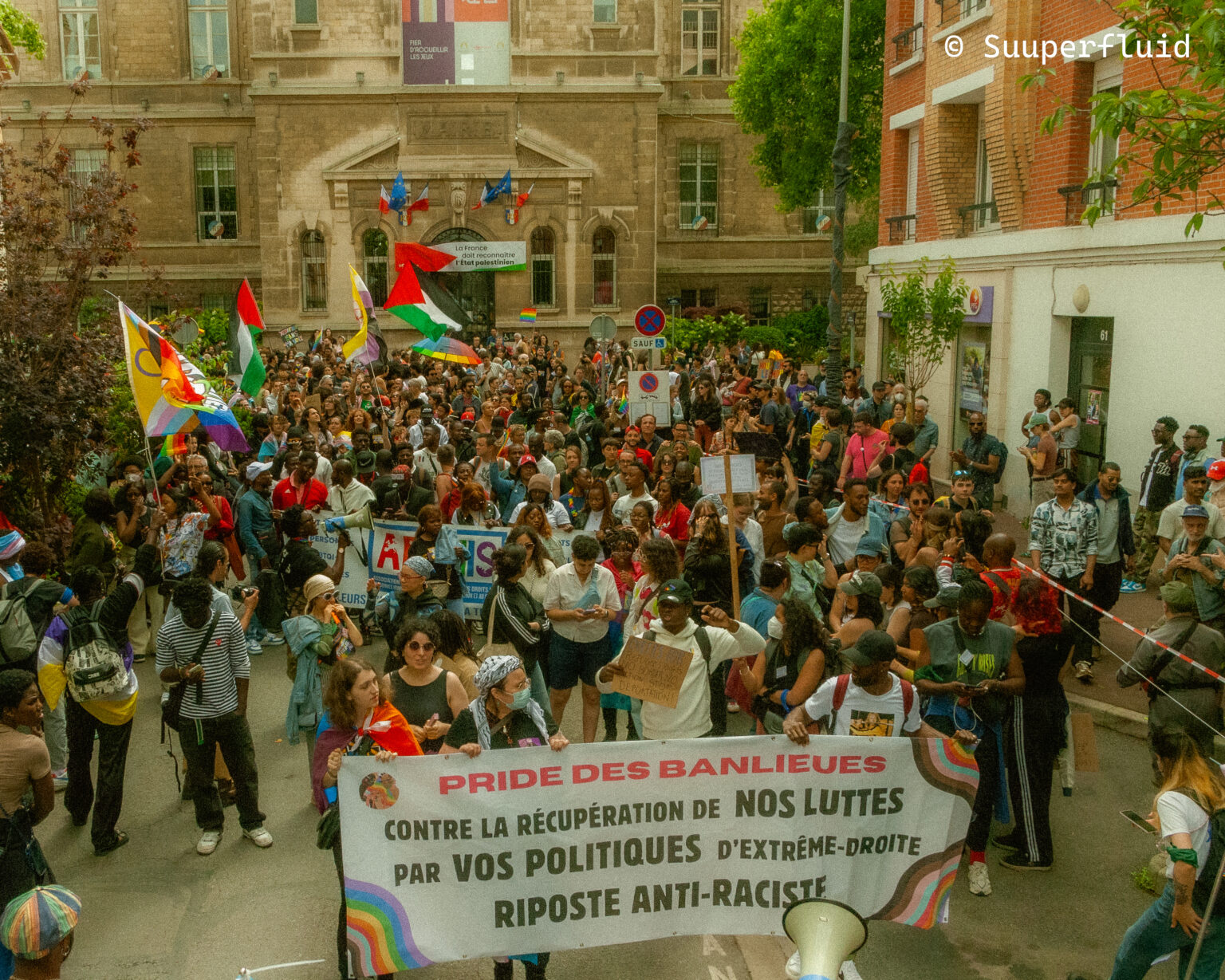
Amid political turmoil, war, social issues and cultural changes, Pride celebrations in Europe continue to demonstrate the resilience and determination of LGBTI communities
Today, on the eve of EuroPride in Thessaloniki, we are highlighting a number of significant Pride events on the continent, and one clear message shines through: LGBTI people are persisting in asserting their right to assemble and freely express themselves, thereby firmly establishing their presence in society. Pride events not only celebrate identity and diversity but also serve as critical platforms for political engagement. They amplify the voices of LGBTI people across Europe, who continue to push boundaries and demand their rightful place in society. Here are just a few of the thousands that have and will happen across Europe this year, in places where challenges are acute.
Kyiv Pride, Ukraine
Kyiv Pride 2024, on June 16, took place amidst challenging circumstances, reflecting the determination of Ukraine’s LGBTI community. Despite facing a cap on participation and heightened security measures, over 500 people marched through the streets of the capital to advocate for partnership recognition and protections against hate crimes. The event occurred against a backdrop of ongoing war, underscoring the urgent need for legislative reforms to safeguard LGBTI rights in Ukraine. Despite tensions and counter-protests, Kyiv Pride 2024 stood as a powerful assertion of the community’s right to freedom of assembly and expression.
“We took only a few steps, we made this painful compromise for the sake of safety and in order to revive the tradition and make a powerful and open Kyiv Pride March next year.” – Anna Sharygina, lead organiser of KyivPride.
La Pride des Banlieues (The Pride of the Suburbs), La Courneuve, France
La Pride des Banlieues happened in La Courneuve on June 22, representing LGBTI people from French working-class areas, many of whom are racialised. The group has been organising the Pride for several years in Saint-Denis. This year, however, the municipalities denied permission to march in Saint-Denis because of preparations for the Olympic Games in the city. Due to a last-minute relocation from its original venue and losing support from a municipality that had previously been an ally of past La Pride des Banlieues marches, the event took place in another suburb of Paris with less resources for security and less time to figure out new support infrastructure.
It was important that La Pride des Banlieues took place this year as the far-right opposition has been gaining more traction in France, getting more intense in their actions against LGBTI communities, with racialised LGBTI communities particularly facing multiple situations of discrimination and harassment. In their political message at La Pride des Banlieues, the organisers and their constituents condemned rising hate speech, discriminatory immigration policies, and institutional racism, aiming to resist far-right co-optation and mobilise solidarity against oppression of ethnic minorities and LGBTI communities in the suburbs.
“The fight against the far-right cannot be reduced to a universal fight, we must recognise the multiple and interconnected realities of oppression.” – La Pride des Banlieues organisers.
Trans Pride Istanbul, Turkey
Trans Pride Istanbul on Sunday June 23 was marked by decentralised actions across the city. Under the theme “Perpetrator State,” participants asserted trans visibility and existence, refusing to be silenced despite bans and oppression. Rather than a centralised march, activists mounted a number of smaller, unannounced activities like hanging trans flags, projecting messages across city landmarks and reading of a statement in front of Pride attendees. The event unfolded amidst stringent security measures, including metro station closures and a heavy police presence. Two people were detained and released after. This year’s Trans Pride Istanbul not only showcased solidarity and determination among Turkey’s trans community but also highlighted ongoing issues of discrimination and the fight for visibility and rights, echoing their message that the state is accountable for perpetuating violence and systemic injustices against trans people.
“We are trans people who are made the targets of violent and discriminatory policies at any chance given just because of our trans identities.” – Trans Pride Istanbul organisers
Looking Ahead
As we approach the end of June, two more significant events lie ahead this weekend.
Bucharest Pride, Romania
More than 25,000 people are expected to take to the streets of Bucharest on Saturday, June 29 to celebrate diversity and claim the rights of the LGBTI community at a crucial moment in Romania. Both presidential and general elections are approaching, and 20% of Romanian MEPs elected to the European Parliament were from the far right, with two of them using anti-LGBTI hate speech. Additionally, a new referendum regarding the definition of families is being pushed by the government opposition.
Pride in Bucharest will address the urgent need for legal recognition and protection of all same-sex families, continuing the push for the immediate implementation of the 2018 Coman case. In the case, the European Court of Justice affirmed residency rights in EU countries (that do not recognise same-sex unions) for the spouse of an EU citizen exercising their right to freedom of movement. Romania has yet to implement the verdict by granting Andrew Coman’s husband a residence permit, and a draft law has been adopted that would stop Romania from implementing it.
ILGA-Europe will be in Bucharest this coming October for their Annual Conference, working with local hosts ACCEPT and MozaiQ, recognizing this as a crucial moment for LGBTI human rights in Romania.
Istanbul Pride, Turkey
Istanbul Pride will take place on Sunday, June 30. Given the government and police response to Pride in the country over the past years, we will be closely monitoring what is happening. One thing we do know is that the LGBTI community in Istanbul and their allies will assert their human right to freedom of assembly and freedom of expression by attending Pride, with pride, resilience and courage. We will be reporting on Istanbul in this year’s instalment of our Turkey Pride monitoring blog over the coming weeks, as we learn from activists and organisers how officials are responding to Prides across the country. You can read our Turkey Pride monitoring blog from 2023 here.
Our submission to the EC 2022 Rule of Law Report
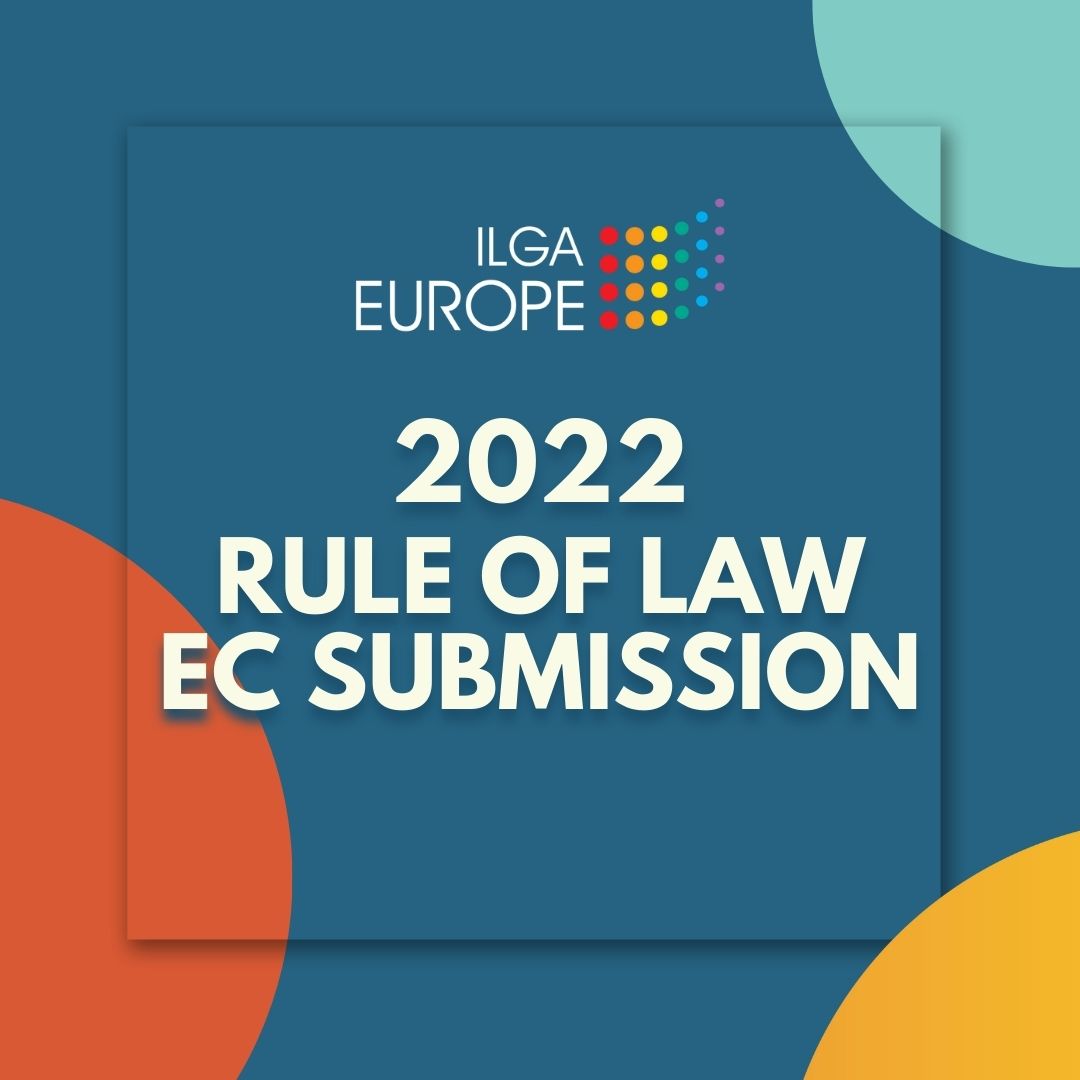
Expert contributions were provided by organisations PROUD (Czech Republic), LGBT komiteen (Denmark), Inter-LGBT (France), Háttér Társaság (Hungary), KPH & Atlas of Hate (Poland), ACCEPT (Romania), and Legebrita (Slovenia).
The developments encompassed in the submission point to systematic attacks on the fundamental rights of LGBTI people enabled by the weakening of rule of law and democratic structures. We have not included all fundamental rights violations against LGBTI people, or all restrictions experienced by LGBTI civil society in the respective countries, only those which are relevant to the respective headings of the consultation, where there is a clear link to rule of law.
Notably the submission covers the following topics:
- Political interference or bias in court cases related to LGBTI rights, in particular where independence of the judiciary is under attack;
- Anti-LGBTI bias, smear campaigns and censorship of LGBTI content, in particular where media freedom is under attack;
- Funding restrictions or discriminatory distribution of public or EU funds, affecting LGBTI organisations;
- Arbitrary application of Covid-19 regulations to attempt to restrict the freedom of assembly of LGBTI people;
- Covid-19 emergency measures affecting the process of preparing and enacting laws (exclusion of LGBTI CSOs in consultation phases or even fast-track adoption of legislation directly attacking LGBTI people);
- Non-implementation of CJEU or ECtHR judgements which would improve the lives of LGBTI people;
- Judicial harassment of LGBTI activists (in particular SLAPPs);
- Insufficient follow-up of anti-LGBTI hate crime cases;
- Anti-LGBTI discriminatory speech from political and religious leaders affecting public perception of LGBTI CSOs and creating an unsafe climate for LGBTI human rights defenders (in some cases leading to attacks on CSO offices, employees and volunteers).
Y. v France
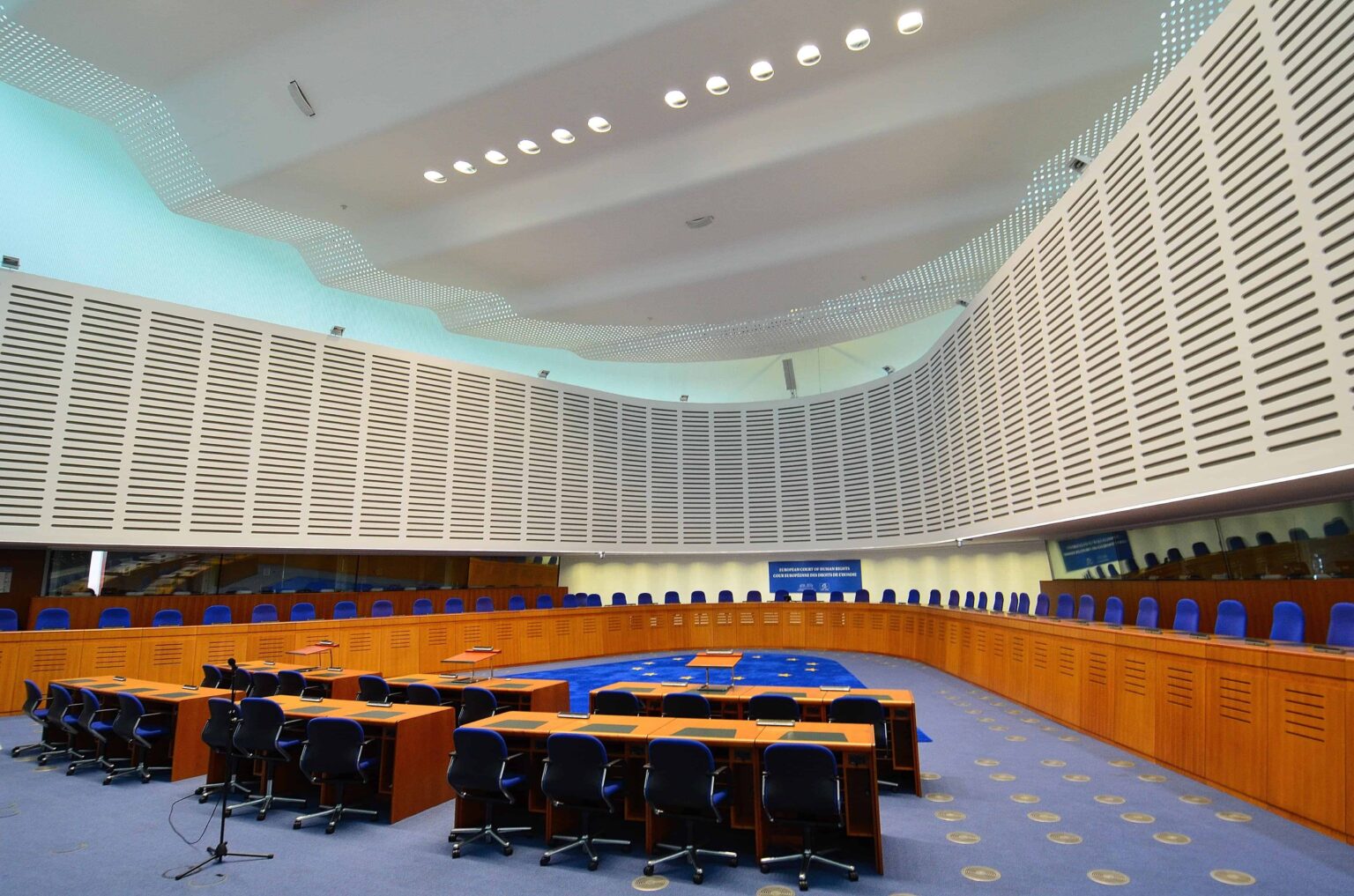
Recognition of non-binary identities.
Submitted jointly by ILGA-Europe, OII Europe, and C.I.A. (Collectif intersexes et allié-e-s).
European Court rules Medically Assisted Reproduction case ‘inadmissable’
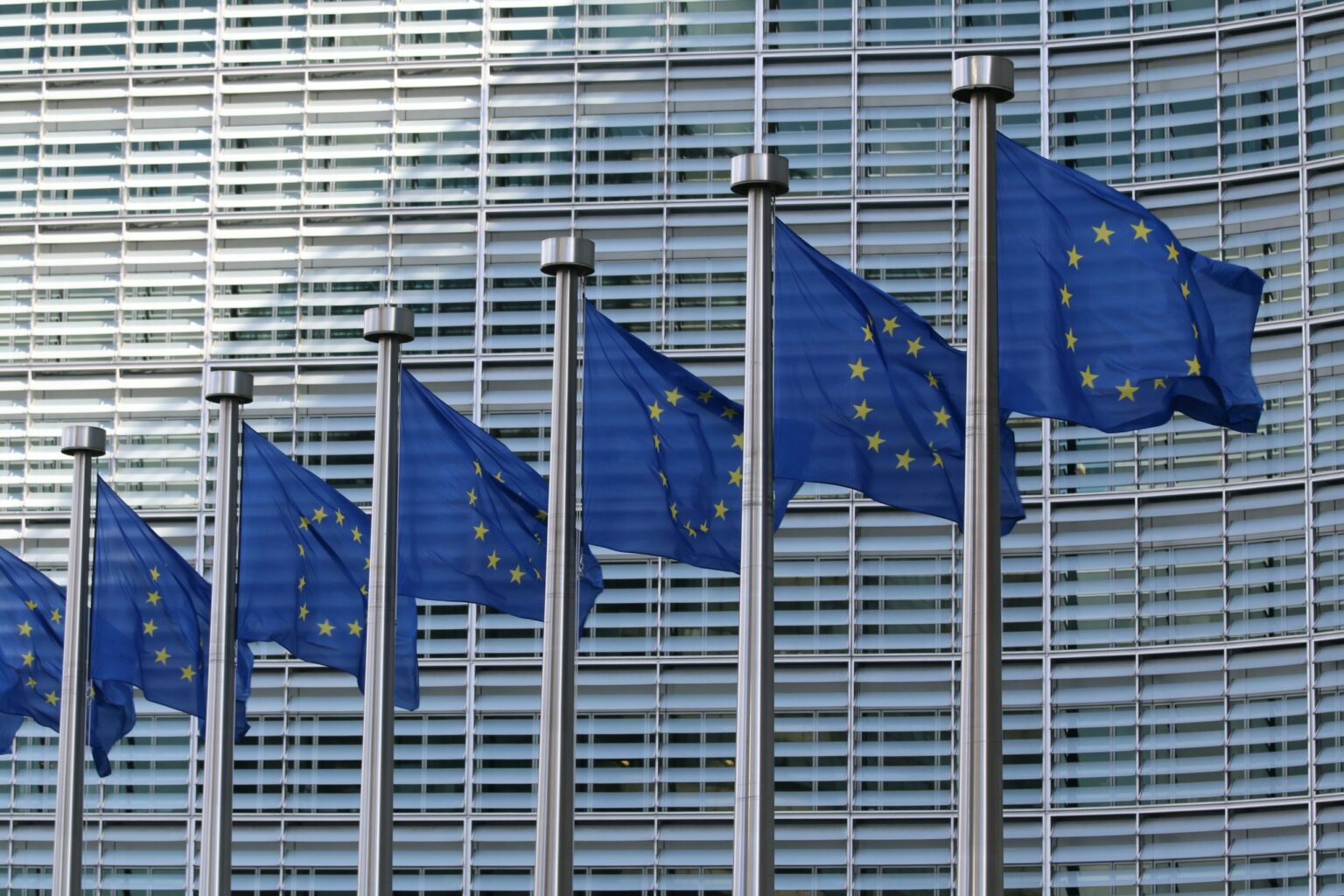
The European Court of Human Rights has today made an inadmissability decision in the case of ‘Marie Charron & Ewenne Merle-Montet v France’.
ILGA-Europe regret that the European Court of Human Rights has today made an inadmissibility decision on medically assisted reproduction (MAR) for a lesbian couple in France, and believes it is a missed opportunity to provide clarity on such an important fundamental rights issue affecting many rainbow families across Europe.
Given the current context in France where bioethics consultations are underway aimed at tabling a legislative bill to Parliament on this in the coming year it would have been a timely judgment.
The National Consultative Ethics Committee (CCNE) recommended in June 2017 that MAR should be extended to single women and women in same-sex partnerships, and a 2017 survey by IFOP and ADFH highlights that the majority of the French public is in favour of providing equal access to MAR to all women regardless of sexual orientation or partnership status.
Katrin Hugendubel, Advocacy Director for ILGA-Europe, said: “The inclusion of the topic of extending MAR to single women and women in same-sex partnerships in the current bioethics consultation represents another opportunity to tackle discrimination single women and lesbian same-sex couples still face today. There have been clear signs of support from a majority of people in France as well as national institutions over the past year. ILGA-Europe look forward to a positive and expeditious outcome of this consultation.”
M.T. v. France

Refusal to grant asylum/ Risk of persecution based on sexual orientation
(Application No. 61145/16), 6 July 2017
Find Court’s communication here in French.
Find Court’s decision here in French.
- The applicant, gay asylum seeker from Cameroon, claimed he would face a real risk of treatment contrary to Article 3 because of his sexual orientation if he were deported back to Cameroon.
- Professor Robert Wintemute (School of Law, King’s College London) submitted the following on behalf of ILGA-Europe, FIDH, LDH and ECSOL :
- There is a strong consensus in European and other democratic societies supporting asylum claims by LGBTI persons. The assessment of the risk must take into account the likelihood that an openly LGBTI person would suffer treatment violating Article 2 or 3. An LGBTI person cannot be expected to conceal their sexual orientation or gender identity in their country of origin to reduce the risk of treatment violating Article 2 or 3.
- Apart from any risk of violence, the Court should consider a real risk of imprisonment for private, consensual, adult, same-sex sexual activity (as in Cameroon) as a real risk of inhuman or degrading treatment violating Article 3.
Charron & Merle-Montet v. France

Access to MAP
(Application No. 22612/15), 12 June 2017
Find here the communicated case.
Find here the decision of inadmissibility.
- The applicants, a same-sex married couple, complain that their request for artificial insemination has been rejected on the ground of their sexual orientation. Donor insemination is legal in France and has been available, since at least 1994, to unmarried different-sex couples.
- ILGA-Europe together with FIDH, NELFA, ECSOL, LDH, ADHEOS and ADFH submitted the following:
- The decision to apply for a legally available opportunity to become a genetic parent clearly falls within the ambit of Article 8, whether taken on its own or in conjunction with Article 14. The Court’s consistent case law prohibits differences in treatment between same-sex couples and unmarried different-sex couples. It has found discrimination, violating Article 14 combined with another Convention right, where a same-sex couple was denied a right or opportunity granted to unmarried different-sex couples.
- The situation of a lesbian couple is relevantly similar (or comparable) to the situation of an unmarried different-sex couple who request donor insemination, so that the female (but not the male) partner can become the genetic parent of a child. Particularly serious reasons, or particularly convincing and weighty reasons, do not exist for the difference in treatment between lesbian couples and unmarried different-sex couples.
- Developments in other Council of Europe member states and other democratic societies support a narrow margin of appreciation. Indeed, in the majority of Council of Europe member states, and in other democratic societies, lesbian women have access to donor insemination, as individuals or as couples.
A.P. v. France, Garçon v. France, and Nicot v. France

Legal gender recognition
A.P. v. France (App. no. 79885/12),
Garçon v. France (App. no. 52471/13)
Nicot v. France (App. no. 52596/13), 24 July 2015 (Key case according to the classification of the ECHR HUDOC database)
- The cases concern the validity of medical requirements imposed by the French authorities on those seeking legal gender recognition, including most prominently permanent sterilization.
- ILGA-Europe together with Amnesty International and TGEU submitted the following:
- The informed consent rule has been linked by the ECtHR to the “inalienable right to self-determination” and “the right to personal autonomy” which come within the scope of the right to respect of private life and the fundamental notions of human dignity and human freedom underpinning the Convention. The flip side of consent is the right to refuse medical treatment.
- The Court has described gender identity as “one of the most basic essentials of self-determination,” linking it to a “right to sexual self-determination,” itself an aspect of the right to respect for private life. Denying a trans person the legal recognition of their gender identity has a severe impact on their daily lives. In Europe there has been a clear trend recently towards simplifying legal gender recognition procedures, including by abandoning sterilization and/or other medical prerequisites.
- The European Court of Human Rights delivered its judgement 6 April 2017.
- The Court held that the refusal for a change in civil status, on the grounds that the applicants had not provided proof of the irreversible nature of the change in their appearance – that is to say, demonstrated that they had undergone sterilisation surgery or medical treatment entailing a very high probability of sterility – amounts to a failure by the respondent State to fulfil its positive obligation to secure their right to respect for their private lives. There has therefore been a violation of Article 8 of the Convention.
Gas & Dubois v. France
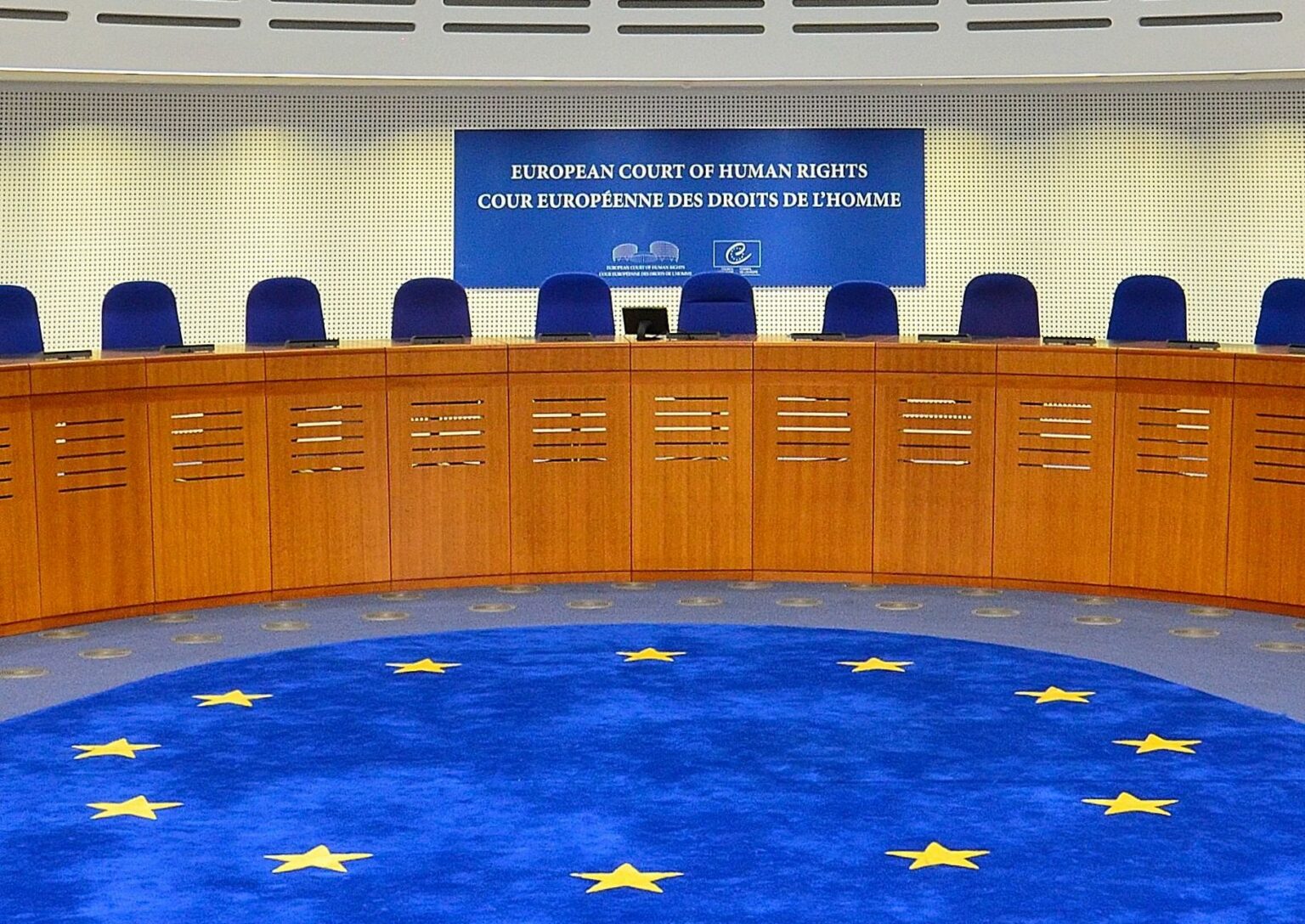
Adoption
(Application No. 25951/07), 21 February 2011
Find Court’s judgement here. (No violation of Article 14 of the Convention taken in conjunction with Article 8)
- The applicants, a same-sex couple who entered into a civil partnership agreement in 2002, alleged that they had been subjected to discriminatory treatment based on their sexual orientation. One of them gave birth in France in 2000 to a daughter conceived in Belgium via anonymous donor insemination. The child had lived all her life in the applicants’ shared home. However, the French authorities rejected their application for simple-adoption.
- ILGA-Europe, together with FIDH, ICJ, BAAF and NELFA made oral and written submissions.
- The interveners drew the attention of the Court to the importance of taking into account the best interests of children in having two legal parents rather than one.
- In their oral submission, they stressed that the strongest and most persistent prejudice against the lesbian and gay minority in Europe is that they represent a threat to the welfare of children, as reflected in decisions of national courts denying lesbian women and gay men custody of their own children, or the possibility of adopting a child as an unmarried individual.
- The European Court of Human Rights delivered its judgement on 15 March 2012.
- The Court referred to the submission and in particular the categorisation of situations in which lesbian or gay individuals adopt children. It also noted the interveners’ finding of a growing consensus that, where a child was being raised within a stable same-sex couple, legal recognition of the second parent’s status promoted the child’s welfare and the rotection of his or her best interests (paras 53 to 57). However, if found no evidence of a difference in treatment based on the applicants’ sexual orientation, as opposite-sex couples who had entered into a civil partnership were likewise prohibited from obtaining a simple adoption order.
E.B. v. France

Individual adoption
(Application No. 43546/02)¸ 3 June 2005
Find Court’s judgement here. (Violation of Article 14 of the Convention taken in conjunction with Article 8 + award of damages)
- The applicant, an unmarried lesbian woman, was excluded from the possibility of adopting a child. She alleged that she had suffered discriminatory treatment based on her sexual orientation which had interfered with her right to respect for her private life (Articles 14 and 8).
- ILGA-Europe, together with FIDH, BAAF and APGL submitted the following:
- Requiring governments to provide objective scientific evidence to justify a difference in treatment is essential to protect a minority against discrimination, because it ensures that the difference in treatment does not reflect a social prejudice against the minority.
- The most deep-seated and harmful social prejudice against lesbian and gay individuals is that they cannot be trusted to care for children. All reputable scientific studies have shown that the children of lesbian and gay parents are not more likely to suffer from emotional or other problems than the children of heterosexual parents.
- As long as the opportunity of applying to adopt a child as an unmarried individual exists in France for heterosexual individuals (whether or not they are living with a different-sex partner), Articles 14 and 8 ECHR do not permit French administrative officials and courts to exclude openly lesbian and gay individuals (whether or not they are living with a same-sex partner), solely because of their sexual orientations.
- The European Court of Human Rights delivered its judgment on 22 January 2008.
- In the Court’s view, the applicant’s avowed homosexuality was a decisive factor leading to the decision to refuse her authorisation to adopt. The domestic authorities made a distinction based on considerations regarding her sexual orientation, a distinction which is not acceptable under the Convention. Accordingly, there has been a breach of Article 14 of the Convention taken in conjunction with Article 8.
Philippe Fretté v. France

Adoption
(Application No. 36515/97), 15 June 2000
- The applicant alleged that the rejection of his application for authorisation to adopt was implicitly based on his sexual orientation alone.
- ILGA-Europe submitted the following:
- By denying Mr. Fretté an “approval as eligible” to adopt a child as an unmarried gay male individual, when it would have been granted had the authorities believed he was an unmarried heterosexual male individual, France discriminated against him on the ground of his sexual orientation.
- The Court should require “very weighty reasons” to justify a difference in treatment based solely on sexual orientation. Besides, there is no scientific evidence that lesbian and gay parents pose any “psychological danger” to children. The absolute exclusion of lesbian and gay persons is grossly disproportionate, and is not in the best interests of children needing adoptive parents.
- The European Court of Human Rights delivered its judgment on 26 February 2002.
- The Court conceded that the reason given by the French administrative and judicial authorities for their decision was the applicant’s “choice of lifestyle”. However, that criterion implicitly yet undeniably made the applicant’s homosexuality the decisive factor. The Court considered that the scientific community was still divided over the possible consequences of a child being adopted by one or more homosexual parents. The national authorities were entitled to consider that the right to be able to adopt on which the applicant relied was limited by the interests of children eligible for adoption. The justification given by the Government was enough to consider that the difference in treatment complained of was not discriminatory within the meaning of Article 14 of the Convention.
- It has to be noted that the Court changed its approached in the case of Karner v. Austria, in which ILGA-Europe intervened.